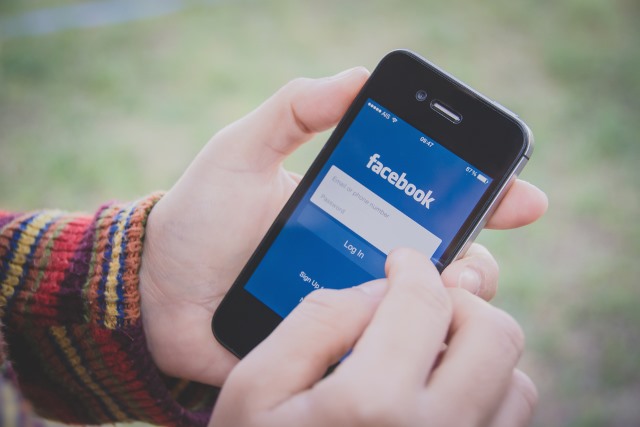
Manners maketh the smartphone user
The smartphone has revolutionzed the way we communicate and access information, but what about the effect it's had on our wider society?
New research from business technology company Pitney Bowes looks at the tricky topic of smartphone e-etiquette -- and no, that doesn't mean sticking out your little finger as you use your phone.

How will 3D printing affect your life?
3D printing is one of those technologies that’s been hovering on the edge of public consciousness for a few years without ever hitting the mainstream.
But as the technology has matured and the machines become cheaper, 3D printing is set to affect all of us. UK electronics supplier RS Components has put together an infographic showing how 3D printing will develop over the next few decades.

8 out of 10 Brits feel misled by advertised broadband speeds
The way broadband speeds in the UK are advertised is misleading according to 80 percent of respondents to a new survey.
Broadband comparison site Cable.co.uk interviewed 2,000 consumers with 58 percent finding advertised speeds "very misleading" and 22 percent saying they are "somewhat misleading".

Microsoft creates a Digital Civility Index -- encourages people to be more respectful online
The problem of trolls and general rudeness is something that many people would like to change about social networks and online interaction in general. Twitter is trying to curb abusive behavior on its service, but Microsoft has a more interesting approach -- it wants people to embrace "digital civility" and to treat each other with respect and dignity online.
With this aim in mind, the software giant has created a Digital Civility Index -- a new measure of people’s safety online and exposure to risks.

Democracy 'threatened' by the social media echo chamber
In the wake of Donald Trump's election in November, we looked at the phenomenon of social media bubbles and the effect they have on political discourse.
Research released by UK political think tank Demos reveals some of the extent of the echo chamber effect in political discussions on Twitter.

The future of home technology
Technology tends to creep up on us and before we know it is an essential part of our lives. In the home we're already seeing increasing numbers of smart devices like thermostats and light bulbs, but what else is on the horizon?
Electronics company RS Components has produced an interactive graphic showing some of the things we can look forward too.

40 percent of British children use the internet unsupervised
Connected devices are a big part of all our lives and that goes for younger members of the family too, but of course connecting to the internet means risk.
A new survey from Intel Security shows 40 percent of British parents do not keep track of their children's online activity, so they don't know when their children are online or what websites and content they're accessing.

Bot traffic takes back the web
Just over a year ago we reported that, for the first time in five years, human web traffic had overtaken bot traffic.
It seems, however, that human dominance was short lived. The latest Imperva Incapsula Bot Traffic Report shows that in 2016 the bots were back on top with 51.8 percent of online activity, although it's an increase in good bot activity that has driven the trend.

Taxi drivers, cashiers and other jobs facing extinction by technology
One of the challenges facing developed economies is that increased use of technology is set to wipe out many jobs. This is leading politicians to explore schemes like national basic incomes so that people can support themselves in a world where work is less certain.
But which jobs are most at risk of disappearing? UK services marketplace Bidvine has conducted a survey to find out how the public think advances in technology are changing the job market.

Many consumers don't care about the impact of piracy
Almost a third of consumers watch pirated content even though they know it's illegal to do so and that it deprives the content creators of revenue.
The study for platform security company Irdeto conducted by YouGov finds that 74 percent of US consumers know that sharing pirated content is illegal and 69 percent that downloading it is.

Businesses missing out by not engaging customers with SMS
Consumers want to communicate with businesses using SMS according to a new study, but companies are failing to grasp the opportunity this offers.
The research from mobile engagement specialist OpenMarket unveils a missed opportunity for financial service providers, retailers and hospitality companies that don't make use of SMS-powered chatbots to more effectively engage with customers.

Social apps dominate mobile activity
Yahoo's mobile analytics arm Flurry has released its State of Mobile report for 2016, looking at mobile app activity and trends from the last year.
Over the last year, Flurry tracked more than 940,000 applications, across 2.1 billion devices, in 3.2 trillion sessions. Compared to 2015 overall app usage grew by 11 percent and time-spent in apps grew by 69 percent.

Complaints about two-factor authentication are on the rise
Of companies that use two-factor authentication, 74 percent admit that they receive complaints about it from their users -- and nearly 10 percent of them just ‘hate it.’
This rather surprising information comes from a studty by access control company SecureAuth, carried out in conjunction with Amplitude Research, which surveyed 300 IT decision makers and cybersecurity professionals on industry perspectives and concerns over 2FA.

My favorite tech items of 2016 [Wayne]
2016 was a bad year in lots of ways -- loads of celebrity deaths, plus Brexit and Trump (depending on your point of view of course) -- but a good year for new tech.
Rather than just looking at what exciting new products made it on to the market in 2016, I’ve decided to take a look at the items that have become part of my digital life in the past 12 months.

My favorite tech items of 2016 [Alan]
2016 is drawing to a close and we're already looking forward to everything a new year will bring. It gets started quick when the Consumer Electronics Show kicks off 2017, but before we start ogling at all those products that may or may not ever see a store shelf, it's time to take a glance back at the year that was.
Many products showed up on the BetaNews doorstep this year and we all worked hard to bring you an overview of them so you'd know what to buy and what to avoid. Now it's time for me to take a look at a few of my favorite items from the past 12 months.
